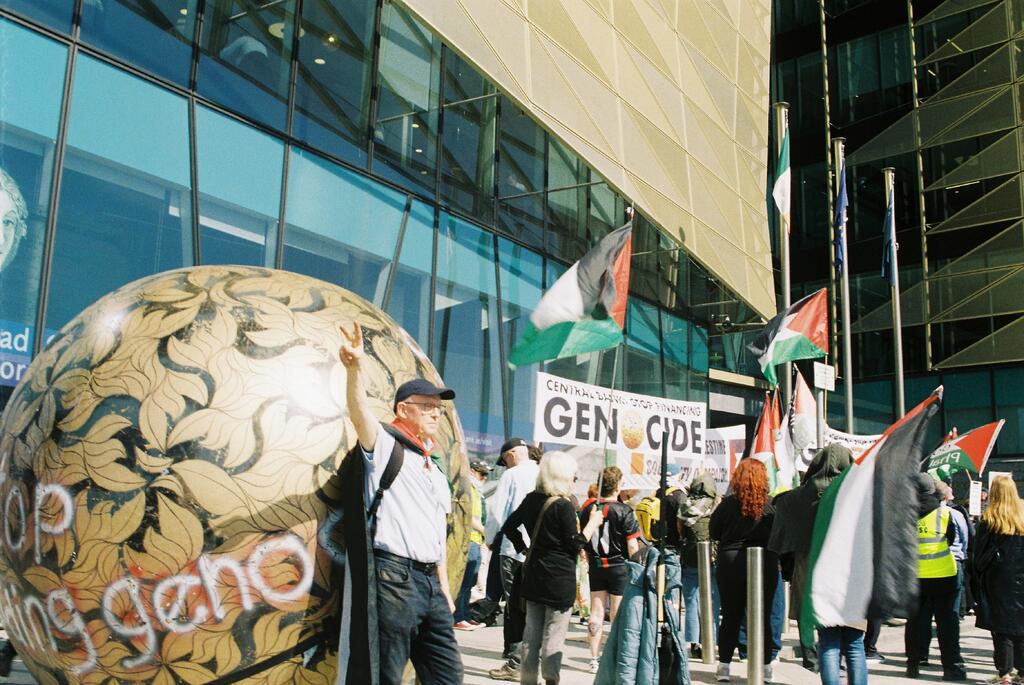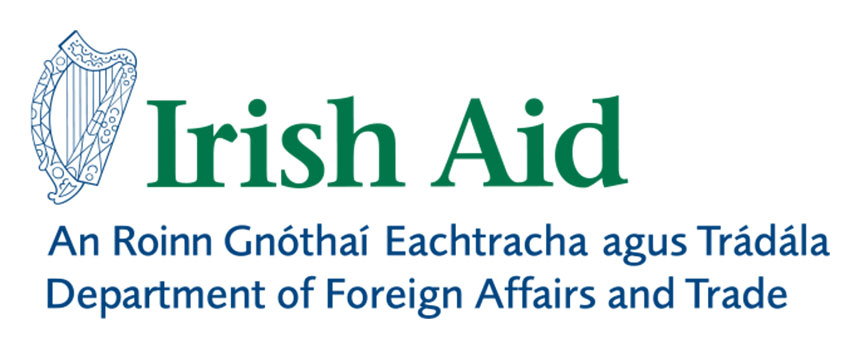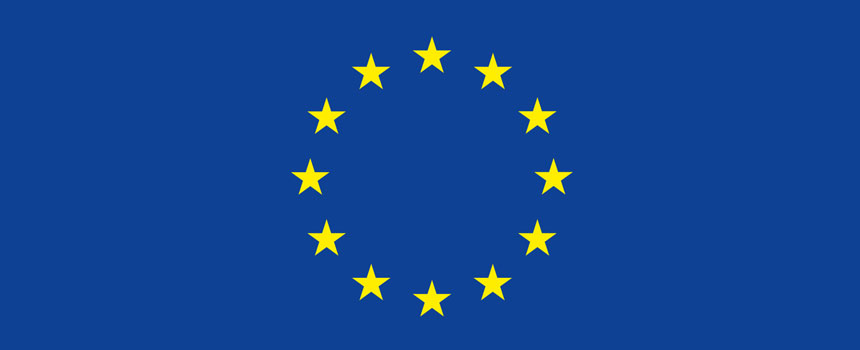Submission on the Occupied Territories Bill July 2025
15 July 2025

Submission for Pre-Legislative Scrutiny of the General Scheme of the Israeli Settlements in the Occupied Palestinian Territory (Prohibition of Importation of Goods) Bill 2025
From: Financial Justice Ireland
Date: 7 July 2025
To: Members of the Oireachtas Foreign Affairs and Trade Committee,
Financial Justice Ireland welcomes the opportunity to contribute to this consultation on the proposed legislation. We are an education and campaign organisation advocating for an economic system that serves all people and respects planetary limits. We deliver programmes across Ireland in schools, youth settings, and communities — with a focus on justice, equality, and informed civic engagement.
Like many others, we have followed the progress of the Occupied Territories Bill (OTB) since 2018 and have long supported its passage. The ever-worsening situation in Gaza and the Occupied Palestinian Territories makes meaningful legislative action more urgent than ever.
1. A Crisis Demanding Action
Israel’s settlement activity in the occupied West Bank, including East Jerusalem, is a clear violation of international humanitarian law — most notably Article 49(6) of the Fourth Geneva Convention, which forbids transferring the population of an occupying power into occupied territory. This position has been upheld by the International Court of Justice (ICJ), including in its 2004 ruling on the Separation Wall and its 2024 advisory opinion. The ICJ reiterated that states must not recognise or support the illegal situation created by settlements, including through trade.
Today, over 737,000 Israeli settlers live illegally in the West Bank and East Jerusalem (UN OCHA, 2024). This expansion has come with increased violence, forced displacement, and restrictions on Palestinian movement — with near total impunity.
2. Upholding International Law Means Ending All Trade with Settlements
In her July 2024 report to the UN Human Rights Council, UN Special Rapporteur Francesca Albanese described how trade — in both goods and services — sustains what she calls Israel’s "economy of occupation and ongoing genocidal campaign." Her report, From Economy of Occupation to Economy of Genocide, makes clear that any continued economic engagement with the settlements is complicity.
The ICJ’s 2024 opinion reaffirmed that states have a duty not to engage in any economic activities - including in services - that support or legitimise unlawful settlements. Ireland’s own Attorney General, Rossa Fanning, confirmed this interpretation, stating that ending all trade with settlements - both goods and services - is legally sound and necessary under international law.
A landmark open letter in May 2024, signed by over 400 Irish lawyers and legal scholars, including senior barristers and EU law professors, also confirmed that there are:
“No insurmountable legal obstacles, in either Irish, European or international law, preventing the adoption of legislation prohibiting the import of goods and services produced in the unlawful Israeli settlements.” The letter also criticised the Government’s failure to act, calling it: “The absolute minimum required from the State to comply with its international legal obligations… Anything less would be an abrogation of Ireland’s long-standing commitment to international law and human rights.”
3. Why Services Must Be Included
While we welcome the Government’s moves to finally enact the OTB, excluding services from the Bill fundamentally undermines its purpose.
Services account for about 70% of Ireland’s trade with Israel. Limiting the Bill to goods - a relatively small portion of economic activity - risks rendering it toothless. Excluding sectors like tourism, tech, and finance allows continued economic involvement in illegal settlements. This contradicts both international law, the public’s demands, and the government’s own pre-election promises.
This omission would also significantly weaken Ireland’s credibility on the global stage and erode the moral force of the Bill.
4. Human Rights Must Come Before Corporate Threats
Tánaiste Micheál Martin has expressed concern that acting on this Bill could “disadvantage” Ireland by upsetting multinational interests. Even if this were true, it should not determine our response.
To again quote the report by UN Special Rapporteur Francesca Albanese:
“While political leaders and governments shirk their obligations, far too many corporate entities have profited from Israel’s economy of illegal occupation, apartheid and, now, genocide.” Ireland must not be complicit — through inaction or fear.
Just as action on climate change may affect some industries, governments are expected to manage those transitions responsibly and to take care to protect workers in such a scenario; not abandon our legal and moral commitments to justice and solidarity. Ireland can draw on a well-established framework for a Just Transition, and it should be applied here, if needed.
5. Public Mandate and Democratic Accountability
There is clear, consistent public support for strong action. A Trócaire poll shows 74% of Irish people support banning trade with illegal settlements. Major trade unions like Fórsa have come out in favour of including services. The public continues to show up — through rallies, petitions, stalls, and events — demanding that the Oireachtas pass a complete and meaningful Bill.
Ireland has a proud record of principled foreign policy. Led by workers and activists, Ireland was the first Western country to ban South African goods during the apartheid regime. Our trade with the settlements may be small, but Ireland’s leadership could have real influence. To pass a diluted Bill would betray that legacy, and the clearly expressed will of the people.
In Summary:
At a time when Palestinians face systematic violence, apartheid, and ethnic cleansing, the Occupied Territories Bill represents a small but vital stand for international law and human rights.
We urge the Committee to:
Amend the legislation to include both goods and services from illegal Israeli settlements;
Ensure the Bill is passed before the summer recess, without further delay;
Support efforts to promote this policy at EU level.
We respectfully call on this Committee to uphold Ireland’s values — and take a clear stand for peace, justice, and the rule of law.
Sincerely,
Thomas McDonagh
Director, Financial Justice Ireland
Sources:
- International Court of Justice (ICJ). (2024). Advisory Opinion on the Legal Consequences of the Israeli Practices in the Occupied Palestinian Territory, including East Jerusalem.
- United Nations Office for the Coordination of Humanitarian Affairs (UN OCHA). (16 June 2025). From Economy of Occupation to Economy of Genocide. A/HRC/59/23
https://www.un.org/unispal/document/a-hrc-59-23-from-economy-of-occupation-to-economy-of-genocide-report-special-rapporteur-francesca-albanese-palestine-2025/ - Territories Bill and call for inclusion of services. Available at: https://www.thejournal.ie/open-letter-lawyers-law-academics-occupied-territories-bill-6712847-May2025/
- Trócaire. (2025). 10 Things You Need to Know about the Occupied Territories Bill. Available at: https://www.trocaire.org/news/occupied-territories-bill-ireland/
- Department of Foreign Affairs (Ireland). (2025). Estimates of Ireland–Israel Trade Balance. Figures cited in Oireachtas Committee hearings, July 2025. Full video: https://www.oireachtas.ie/en/committees/34/foreign-affairs-and-trade/videos
- RTE (4 July 2025) Occupied Territories Bill Must Not ‘Disadvantage Ireland Unduly – Martin. Available at: https://www.rte.ie/news/2025/0704/1521781-ireland-middle-east
- Irish Centre for Human Rights, University of Galway. (2025). Letter from Irish Legal Experts in Support of the Occupied Territories Bill. Excerpted and linked via: https://www.thejournal.ie/open-letter-lawyers-law-academics-occupied-territories-bill-6712847-May2025/


